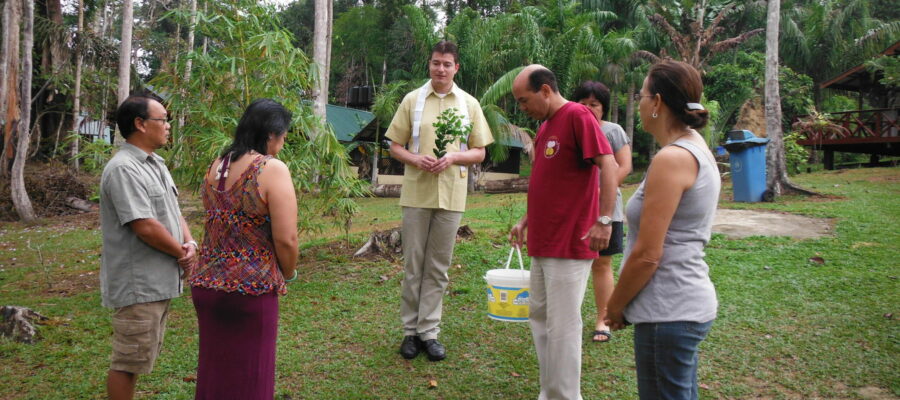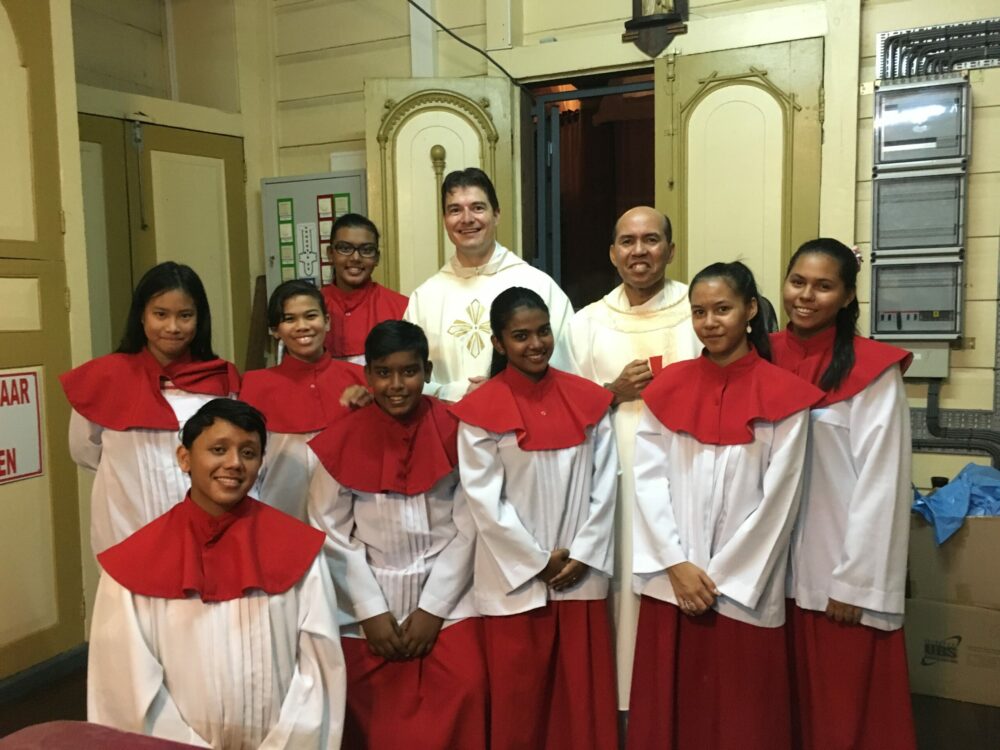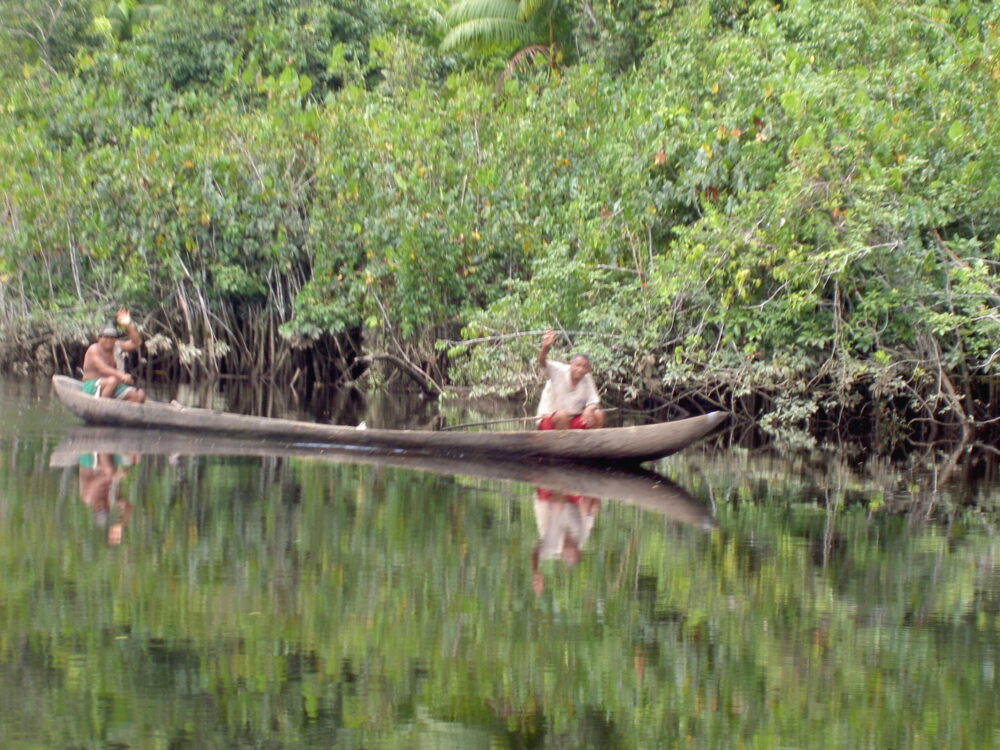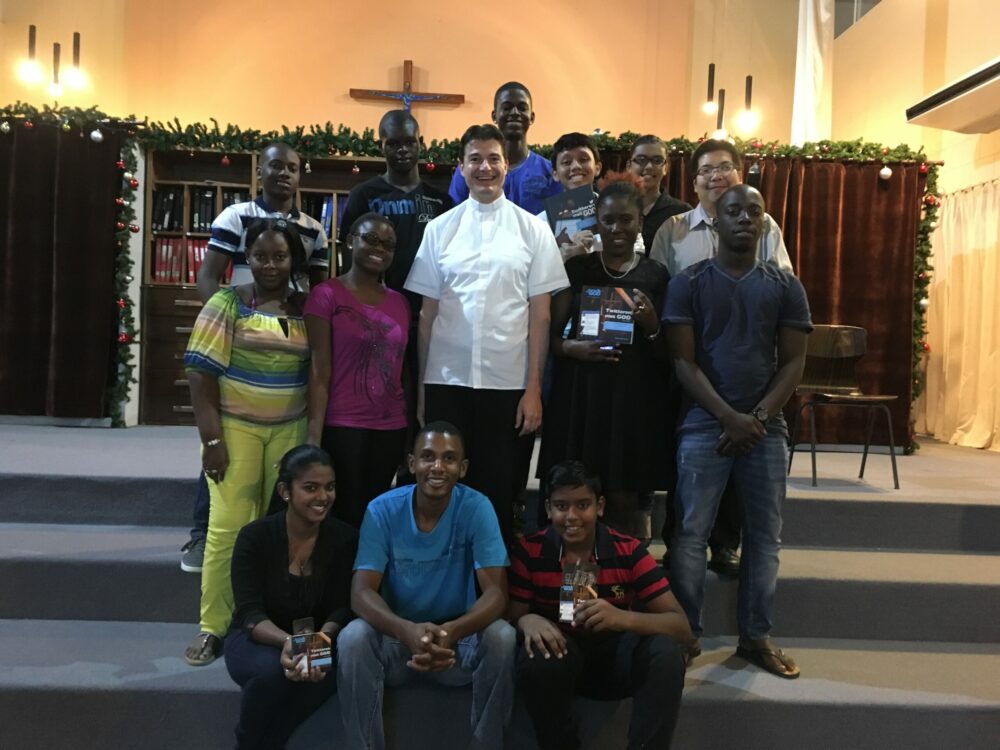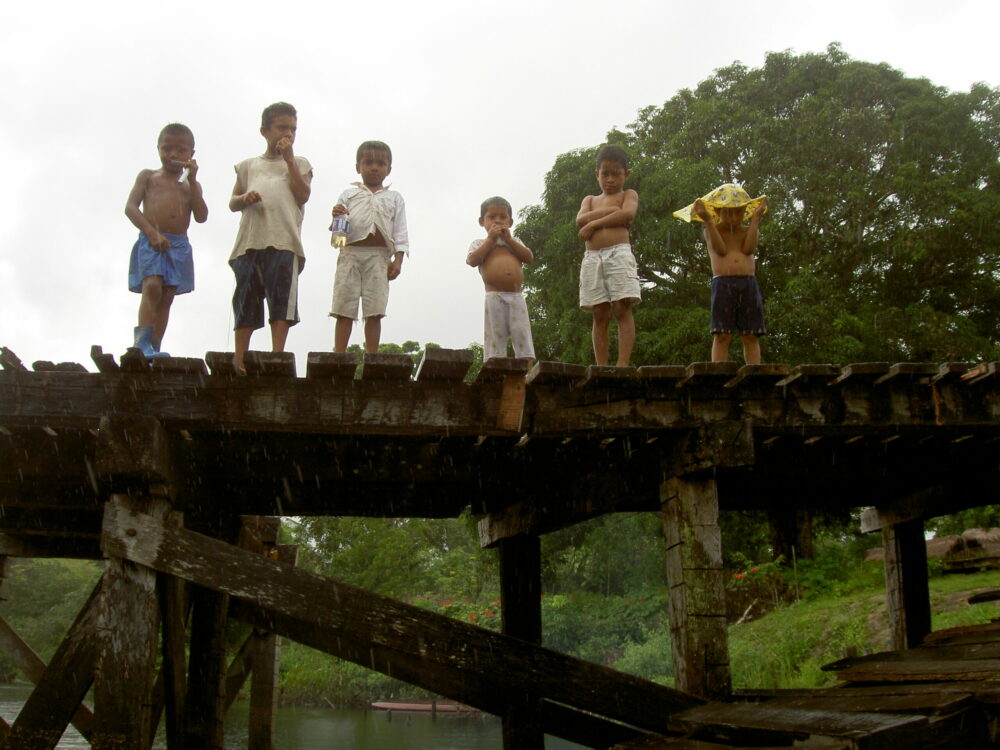The purpose of life in the Surinamese jungle
I sit on the prow of a fast-moving boat making its way over the broad muddy Copename river with the Amazonian rainforest protruding over the water on both sides. The rhythmic singing of the native boatsman makes my eyelids heavy… Our boat is being paddled to the rhythm of the monotonous singing of a long row of natives. In the prow, amidst his boxes and portable altar, sits a bearded missionary with his long cassock and pith helmet, shielding his eyes against the sun with his hand as he looks at the shores… I awake with a shock when the helmsman calls out: ‘Hold on, rapids!’ My helmet is a baseball cap, my eyes are shielded by sunglasses, and the paddling natives have been replaced by a powerful outboard motor, but for the remainder this could have been a scene from the days when the first missionaries made their way upstream to proclaim the gospel to the population of the rain forest!
Rapids & alligators
It is February 2006. I am in Suriname, a former colony of the Netherlands, where Dutch is still the national language. While our boat speedily makes its way over the water, I continue to take in my surroundings. At times a trunk floating in the water causes some diversion, as it needs to be carefully avoided. With our speed the effects of a collision would be disastrous. From time to time we hear a troop of monkeys screech as they sling from tree to tree on the shore. When the helmsman reduces speed and tells us to hold on while we pass through some rapids, I see an alligator lounging at the side of the river, lazily opening its huge jaw halfway as if it is considering whether lunch will be on us!
Ours is the lightest boat with the strongest motor and the best helmsman. Even so it will take us the best part of two days on the river to get to the village that marks the furthest point of our destination. With no roads, it is the only way to reach this isolated place. This is the district of the Wayombo indigenous tribe. We stop for the night in Corneliskondre. From the water, the village looks very pretty. The roofs of the adobe houses are covered with banana leaves or corrugated iron. As soon as they hear our boat, the villagers come out to greet us, the kids running ahead, screaming and waving joyfully.
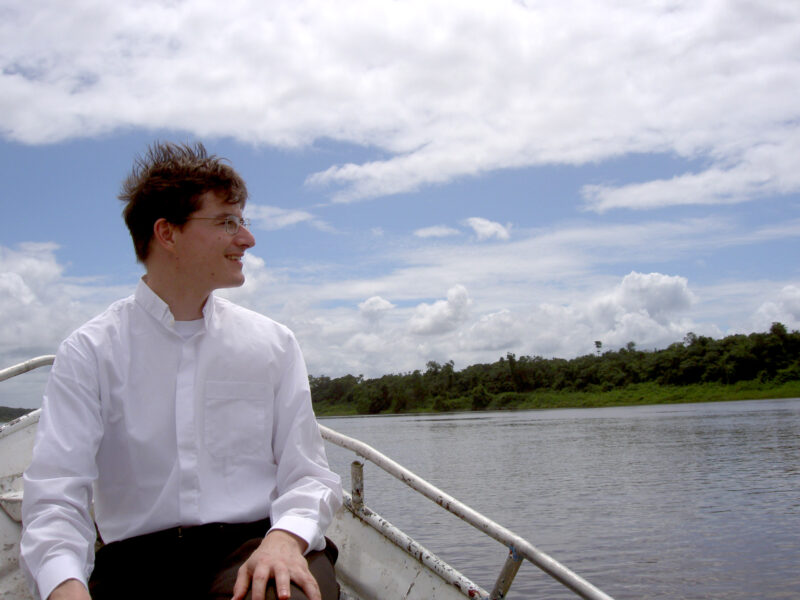
Baptism in the forest
Agnes, the catechist of the village, has helped the parents to prepare ten children for baptism. The first child is a tiny baby who squeals her lungs out while her mother holds it resolutely over the basin with two strong arms. I scoop some water with my hand and pour it gently over its head, saying: ‘Ik doop je…’, ‘I baptise you…’ Immediately the baby stops crying and seems to look me directly in the eyes. It is as if it goes through an internal change. Completely calm now, it sits happily in its mother’s arms. When I perform the rites after baptism she even seems to smile, together with her grateful parents: their baby has become God’s adopted child through this sacrament! It has received new life in God!
While not all the other babies react in quite the same way – in fact there is a lot of crying going on – I will often think back to this moment. We can say it so nicely as theologians: ‘Yes, baptism is essential, but God’s grace is greater than the sacraments so there is no need to be overly hasty about it’. While this is true, the great faith in the sacraments which I witness here demonstrates both the necessity and the urgency of baptism for life itself! Through this sacrament, God adopts these children as his own and sets them firmly on their path to eternal life with him. Whatever happens, no one can take this opening to supernatural life away from them! Like for Augustine, their lives now have a very hopeful outlook, whatever problems they may have to face in their lives.
The Mission
As we make our way back to the city, stopping in other villages along the river, I look at the map and see we have only covered a tiny bit of the huge country. Still, Suriname is the smallest state of South America. The villages are widely spread out and difficult to reach. How great were the efforts of the early missionaries, who accepted many hardships and dangers to bring the hopeful message of the Gospel to people deep in the Amazonian jungle. They had no motor vessel, no church, nor could they use their native language. We are here thanks to their tireless missionary work. Any thought about whether the indigenous people would have been better off without Christianity is effectively quelled by the thought of the desire I saw in the eyes of the parents of the kids I baptised. Ask them, and they will tell you forcefully that they want life for their children! And thanks to the early missionaries and contemporary priests like Father Esteban they are able to attain this supernatural life in abundance! Jesus accompanied the missionary commissioning of the disciples with the words: ‘Go into all the world and make disciples of all nations, baptising them in the name of the Father and of the Son and of the Holy Spirit’ (Mt 28:19). Through the testimony of the native Christians I met these days, I profoundly realise the urgency of the proclamation of the Gospel to everyone, in a voice loud and clear! That is how God is at work here in the jungle.

